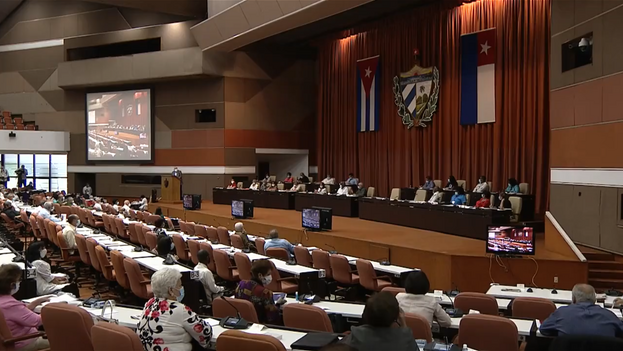
14ymedio, Reinaldo Escobar, Havana, 27 October 2020 — A subtle threat was insinuated this Monday with regards to the most important political reform carried out in Cuba in recent years: the limitations on the time the country’s high government officials can remain in power.
The proposal to allow indefinite reelection was one of the 16 put forward by the parliamentary committees that are in charge of analyzing a set of laws that will be submitted to the consideration of the National Assembly of People’s Power (ANPP) during the 5th Ordinary Period of Sessions, scheduled for 28 October. The bill in question regulates matters concerning the president and vice president of the Republic.
For such a proposal to be successful, Article 126 of the current Constitution would have to be modified, which establishes that the President of the Republic “can hold office for up to two consecutive terms, after which he cannot serve again.” But in addition, it would be necessary to comply with what Article 228 of the Constitution itself requires, which says that when the reform of the Constitution refers to the term of office of the President of the Republic, “it also requires ratification by the majority of the voters in a referendum called for such purposes.”
It is highly unlikely that in the current circumstances those in charge of Cuba will risk holding a popular referendum with the intention of perpetuating in power a person who was not even directly elected by the voters. So, the question arises: what is this threat about, to reverse the only democratic legacy left by Raúl Castro?
In almost half a century of existence, the Cuban Parliament has not given a single sign of disobedience or disagreement, and if it has happened “behind closed doors,” the official media have never reported it and never would report it. Dissenting from a political reform carried out by Raúl Castro is, clearly, a sign of what can be expected of the deputies. A sign that, when translating the codes of grammar, means: “Don’t have any illusions.”
On the other hand, the publication of this hopeless proposal is intended to make the unwary believe that there is some kind of daring in the ANPP, but their audacity is only reserved for the containment of changes, never for what might seem like an opening.
____________
COLLABORATE WITH OUR WORK: The 14ymedio team is committed to practicing serious journalism that reflects Cuba’s reality in all its depth. Thank you for joining us on this long journey. We invite you to continue supporting us by becoming a member of 14ymedio now. Together we can continue transforming journalism in Cuba.
